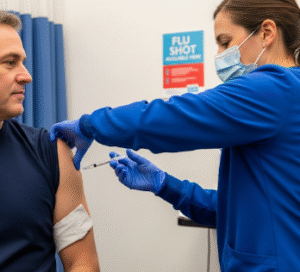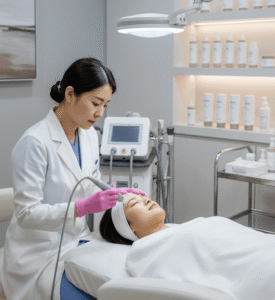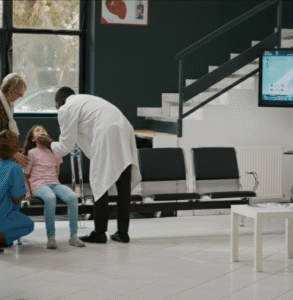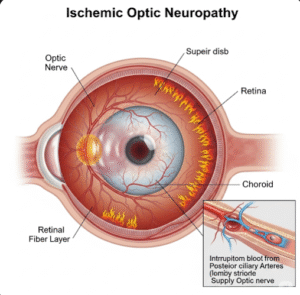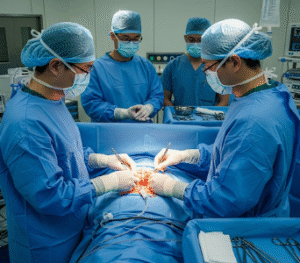Overview
Sympathetic ophthalmia is a rare but serious autoimmune condition that causes inflammation in both eyes following trauma or surgery to one eye. It is characterized by bilateral granulomatous uveitis and, if left untreated, can lead to severe vision loss. In Korea, early diagnosis and aggressive immunosuppressive treatment are available at major ophthalmology centers to preserve vision and manage inflammation.
What is Sympathetic Ophthalmia?
Sympathetic ophthalmia (SO) is an autoimmune response in which the immune system mistakenly attacks the uninjured (sympathizing) eye after a penetrating injury or intraocular surgery in the injured (exciting) eye. The condition typically develops weeks to months after the initial trauma but can occur even years later.
It involves:
- Granulomatous uveitis (inflammation of the uveal tract),
- Retinal and choroidal inflammation, and
- Infiltration of immune cells in both eyes.
This condition requires prompt attention to prevent irreversible blindness.
Symptoms
- Blurred vision
- Eye pain in either or both eyes
- Photophobia (light sensitivity)
- Redness in the unaffected eye
- Floaters
- Decreased visual acuity
- Possible headache due to eye strain or inflammation
Causes
- Penetrating trauma to the eye (e.g., from accidents, sharp objects)
- Intraocular surgeries, such as:
- Vitrectomy
- Retinal detachment repair
- Cataract extraction (rarely)
- Uveal exposure – triggers immune activation against eye antigens
The autoimmune system targets the pigmented tissues in the unaffected eye, perceiving them as foreign after being exposed due to trauma or surgery.
Risk Factors
- History of eye trauma
- Recent intraocular surgery
- Delay in enucleation (removal) of severely injured eyes
- Male gender (slightly higher incidence)
- Younger age at time of injury
- Genetic predisposition to autoimmune reactions
Complications
- Chronic uveitis
- Retinal detachment
- Cataract formation
- Glaucoma
- Optic nerve damage
- Permanent vision loss or blindness in both eyes if untreated
Prevention
- Immediate enucleation of the severely damaged eye (within 10–14 days) may reduce risk
- Prompt treatment of ocular injuries and surgical complications
- Close monitoring after intraocular surgery or trauma
- Use of protective eyewear to prevent eye trauma
Treatment Options in Korea
South Korea offers comprehensive care for rare autoimmune eye conditions like sympathetic ophthalmia through specialized eye centers and immunology departments. Hospitals prioritize vision preservation through early detection and aggressive immunosuppressive therapy.
Diagnosis
- Clinical evaluation by an ophthalmologist with detailed eye history
- Slit-lamp examination to identify granulomatous inflammation
- Fundoscopy and optical coherence tomography (OCT) for retinal evaluation
- Fluorescein angiography to detect leakage from retinal vessels
- B-scan ultrasonography to visualize posterior eye involvement
- Blood tests to rule out infections or systemic autoimmune diseases
Treatment Approaches
- Immunosuppressive Therapy
- Systemic corticosteroids (e.g., oral prednisone or IV methylprednisolone)
- Steroid-sparing agents:
- Azathioprine
- Methotrexate
- Cyclosporine
- Mycophenolate mofetil
- Biologic agents in refractory cases (e.g., anti-TNF drugs)
- Topical and Local Treatments
- Corticosteroid eye drops
- Periocular steroid injections
- Mydriatic drops to prevent synechiae and reduce pain
- Surgical Management
- Vitrectomy in cases of severe inflammation or retinal complications
- Enucleation of the injured eye (if non-functional and early in course)
- Regular Monitoring
- Long-term follow-up with ophthalmologists and immunologists
- Routine imaging and vision testing





